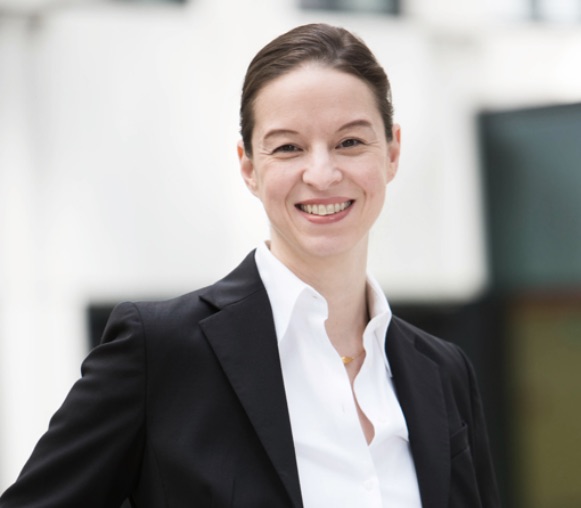Tatjana Gravenstein
Expert Sustainability / Public Affairs – ING
Sustainable Finance – what does that mean to you?
Tatjana Gravenstein: The financial industry has a key role to play in achieving the Paris climate goals: Financing the transformation towards a low-emission, climate-resilient economy, and society. As a financier and companion, we as a bank can control financial flows in such a way that they support the achievement of the Paris climate goals. Banking becomes sustainable banking. For this it is essential to include environmental, social, and corporate governance aspects in all our decisions.

In your opinion, what’s the key to successfully develop the sustainable finance movement?
Gravenstein: Sustainability is on the agenda, many companies have made a public commitment to climate protection – now it is a matter of setting ambitious goals and initiating the right measures so that they are adhered to and implemented.
I believe that all banks would benefit from an industry-wide standard that increases transparency and thus our collective effectiveness in combating climate change. And we need fair competitive conditions. To achieve this, all actors have to pull together and work together on solutions – business, industry and politics.
We have to get out of our “comfort zone”, look ahead and make every effort to achieve our common goal – namely to keep global warming as low as possible.
What role does ING play here?
Gravenstein: As ING, we have the greatest positive influence on climate protection through our financing. With the money that we lend to our private and business customers. For this reason, we committed in 2018 to managing our total loan volume of around 700 billion euros in line with the Paris climate targets. We call this the Terra Approach.
Sustainability is an integral part of our strategy – and is reflected in all our decisions – as a lender, as an investor and through the services we offer our customers. We want to use our influence in a positive sense and finance changes, share knowledge and gain partners to join our path. The only way to make real change is to do it collectively within the financial sector. For this reason, we have actively worked with other banks to pilot the methodology with 2DIIi. That is why it is also open source, open to all banks.
Our goal is to enable people to act independently and responsibly in their private and business life.
If we at ING want to continue to be successful in the future, we must not only reduce our own direct and indirect footprint, but also support our customers in managing the risks and opportunities that environmental challenges bring with them. In doing so, we not only strengthen the resilience of our own company, but also social resilience to climate change.
We’ve also been collaborating with other banks and experts to define a standard way to do this across the financial sector.

“My goal is to anchor our sustainability strategy even more firmly and to bring it into the minds of our employees – from the board of directors to our colleagues in customer dialog or back office.”
What is your personal goal?
Gravenstein: As a sustainability expert at ING in Germany, my goal is to anchor our sustainability strategy even more firmly and to bring it into the minds of our employees – from the board of directors to our colleagues in customer dialog or back office. Because this is where our strategy becomes visible and effective – as a product on our website, in discussions with our business customers, in the assessment of risks and in our daily interaction.
I would like to inspire my colleagues to make sustainability part of their daily work and to support them in the implementation as best as possible. Everyone should be proud to have sustainability goals and to achieve them.


